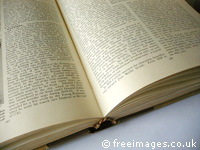Wikipedia matches Encyclopaedia Britannica for science, finds peer review
A study by the journal Nature has found that the accuracy of scientific information contained in the free online resource Wikipedia is roughly the same as that of the Encyclopaedia Britannica. Wikipedia is produced by volunteers who add entries and edit others, while the Encyclopaedia Britannica is produced under the leadership of an editorial board comprising Nobel laureates and Pulitzer Prize winners, leading scholars, writers, artists, public servants, and activists who are at the top of their fields. Wikipedia was founded in 2001, and now plays host to more than 1.8 million articles in 200 languages. In contrast, the Encyclopaedia Britannica was founded in 1768. In the past, Wikipedia has been criticised for inaccuracies in its entries, but Nature's peer review did not support this criticism. Eight serious errors, including misinterpretations of important scientific concepts, were detected in the articles compared - four from each encyclopaedia. In addition, many less serious errors, classed as factual errors, omissions and misleading statements, were found in each - 162 and 123 in Wikipedia and Britannica respectively. In January, Wikipedia will begin testing a new mechanism for reviewing the accuracy of its articles.



